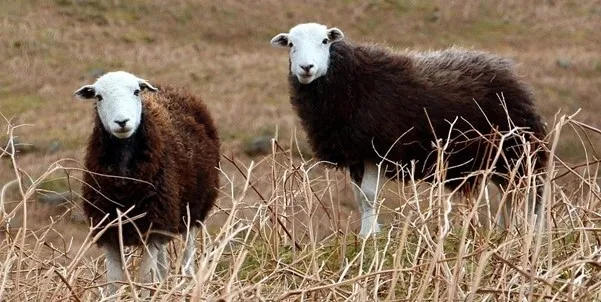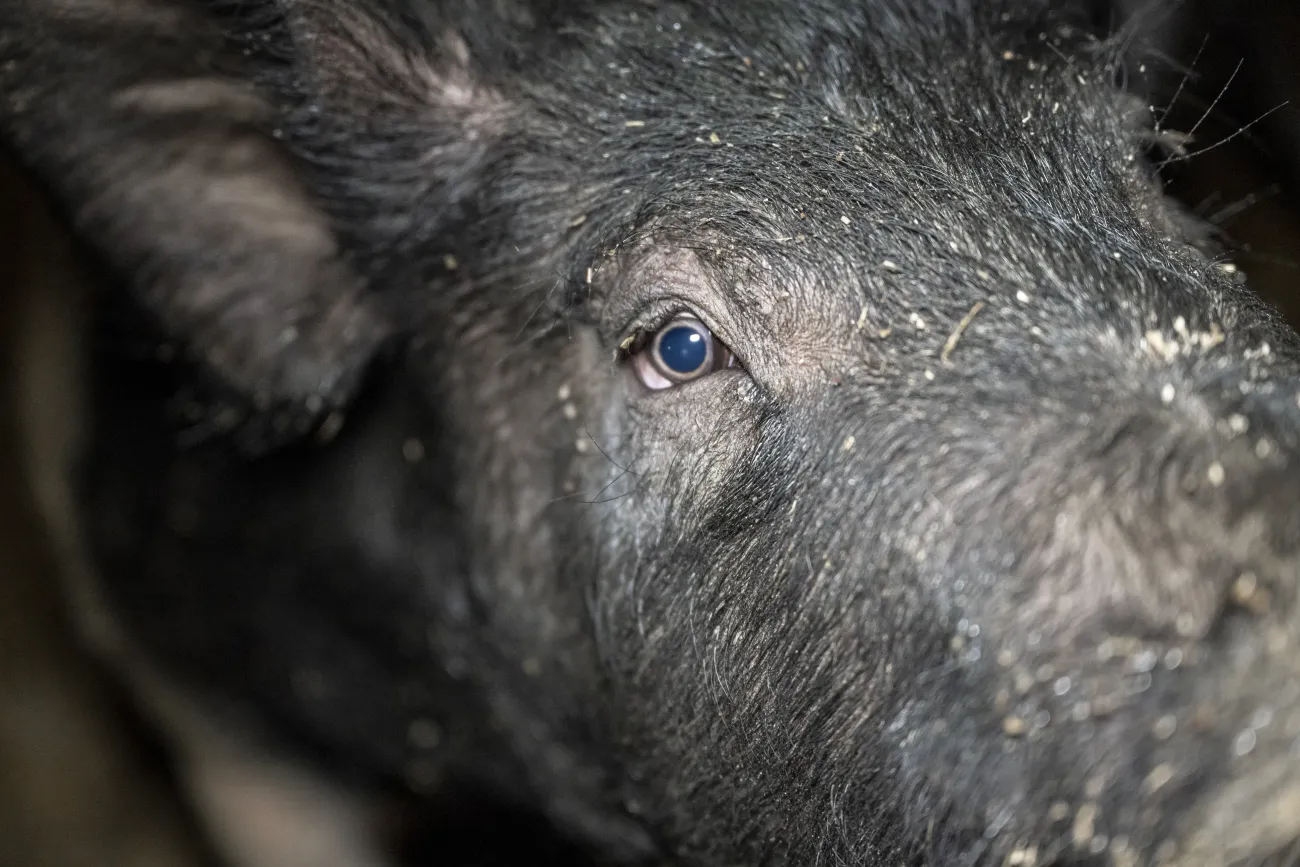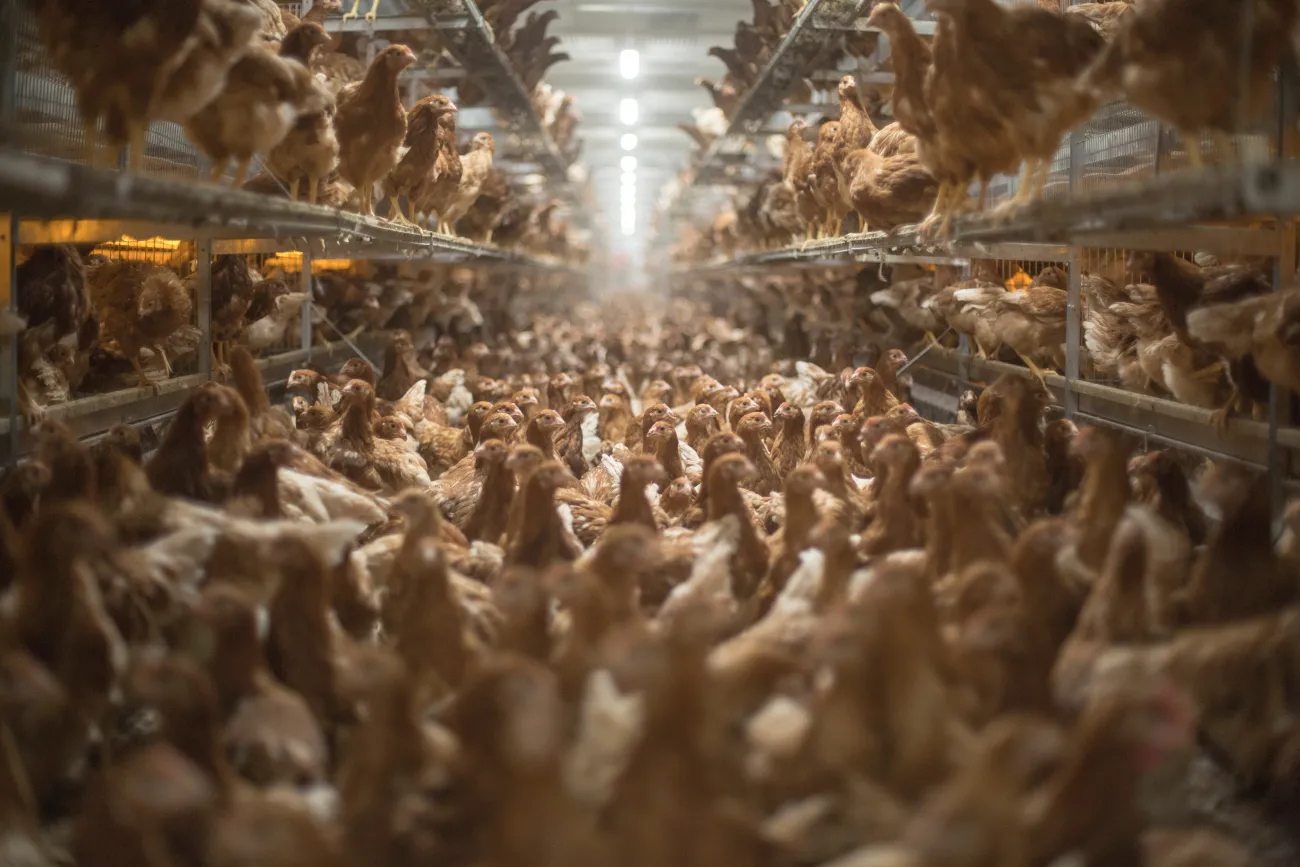Hibba Mazhary is a part-time PhD student in Geography at the School of Geography and the Environment, University of Oxford. Hibba first entered the department as a BA Geography undergraduate in 2013, before going on to complete an MSc there in Nature, Society and Environmental Governance. She divides her time between fieldwork, teaching undergraduates, and undertaking various part-time research assistant roles, including a project on parenting and the gut microbiome, one on meat normalisation media narratives, and one with the RSPCA on laboratory rat welfare. Hibba is interested in all things farm animal welfare and food sustainability. Her first TABLE blog, in which she sets out the aims of her PhD research, can be found here: Distancing death: slaughter, welfare and consumption in the British halal meat industry.

Introduction and background
What makes British Muslims’ consumption practices distinctive? Is there a unique story to tell regarding their meat consumption? How do they negotiate various competing motivations? In light of popular consumer movements to learn about where our food comes from, how do Muslim consumers think about food animals’ lives and deaths?
These are questions I have been grappling with over the past few years of my PhD research into the British halal meat industry. To answer them, I have visited farms and abattoirs, interviewed the main British halal meat certifiers and retailers, attended food festivals, and carried out an online survey with 700 halal consumers (using a sampling strategy to reflect the gender, age and region distribution of Muslims in the UK1), all of which I draw upon in this post.
A note on terminology: I tend to use ‘Muslims’ and ‘halal consumers’ interchangeably as the large majority of British Muslims do adhere to a halal diet – 90% according to one report2 and 86% according to another3. ‘Halal’ refers to what is permissible under Islamic law, and can refer to all permitted foods, but for the purposes of this post concerns meat from animals slaughtered using a specific method: in brief, involving a sharp incision across the animal’s throat whilst uttering a specific prayer and draining its blood.
Why are British Muslims an interesting group to explore when it comes to meat consumption? For a start, their consumption counts. The halal sector accounts for a large share of the UK’s meat output. 71% of all sheep and 22% of all chicken slaughtered in the UK are slaughtered using a halal method4. British Muslims consume more meat per capita than the general population5, including 20% of the country’s lamb6. They are also more financially disadvantaged than the national average7 and occupy that tricky space of constituting both an ethnic and religious minority community. This is interesting to explore because of the lack of academic work focusing on the welfare and sustainability concerns of lower income and minority citizens, particularly when such ethically-motivated interests are often seen as the preserve of the white middle classes. Add to this the fact that halal is a rapidly growing sector worldwide (increasing 2.9% annually8) and it becomes clear that the story of British meat consumption, and indeed global meat consumption, is incomplete without engaging with halal consumption. I will first delve into the way halal consumers used faith-based motivations to aspire to ethical consumption, before exploring how such aspirations are often constrained in practice by lack of affordability and access.
Aspirational ethical consumption
John Lever, a social scientist who has published extensively on halal food markets, stated that “Muslim and non-Muslim consumers have (very) similar rather than (extremely) disparate concerns about food production and consumption”9. Similarly, a lamb and beef industry report argued that there is no significant difference between halal and non-halal consumers in that both groups “tend to shy away from the specifics about slaughter” and rely on assurance schemes to vet animal welfare10.
So, what is the unique story of halal consumers? It lies in the ways in which faith-based motivations become implicated in aspirational ethical consumption. What emerged as a noteworthy theme from my fieldwork was how halal consumers justified ‘secular’ health, welfare and sustainability concerns using spiritual reasons. In the survey and interviews, consumers took physical concerns about health and linked them with metaphysical impacts. For example, the owner of a halal meat nutrition business declared that “food is deeply spiritual”, and that consuming “toxic processed food” was not fulfilling the primary function of food in the first place, which was to “nourish our mind, our body and our spirit”. When asked whether they would be willing to pay more for an organic/free-range versus intensively-reared chicken, another survey respondent answered: “I would gladly pay more in the dunya [current life] to save my akhira [afterlife]”.
Participants also frequently referenced Islamic scriptural sources as guidance for the treatment of animals and there was an effort to align with good practices demonstrated by prominent religious historical figures. For example, the concept of ‘tayyib’ was often invoked, which is an Arabic term from the Qur’an (Islam’s central religious text) – roughly translating to ‘pure’ or ‘good’ – that (mostly) appears alongside the word ‘halal’. A popular interpretation of this term amongst respondents was to link it to food, believing that it encompassed health, quality, welfare and sustainability dimensions. Such interpretations of ‘tayyib’ echo the ‘One Health’ concept (used in the public health and epidemiology fields) that simultaneously considers human, animal and environmental health11. Many acknowledged, however, that this did not line up to current practice in the British halal meat sector, identifying a wider “disconnect between what the religion says and what Muslims do” (Halal slaughterhouse owner interview, 2020).
The religiously-charged nature of these motivations is however complicated by the fact that ethical food consumption is an increasingly “secular-spiritual” pursuit12, where religious language and metaphors can be used in broader contexts. For example, in one study, vegetarians and locavores described becoming vegetarian as a “conversion” and linked avoiding certain foods with cultivating a “healthy soul”13. Yet Muslim consumers’ engagement with sustainability and welfare discourses using faith-based language is notable because it shows a reclaiming of discourses that they perceive to be externally imposed and as weaponised against them. For example, animal rights have often been used as a talking point in xenophobic discourse around halal and kosher14. One survey respondent argued that “organic, vegan and other trends are recent middle class white impositions on us”, whilst another saw welfare and sustainability as “problematic narratives” that were “often tools of Islamophobia in media discourse, disguised as moral/ethical concerns”. The use of the word “imposition” here points to the feelings of frustration and disempowerment that can often be triggered by discussions of ethical consumption, and the mention of discrimination highlights that consumption choices of a minority community are not neutral but loaded with cultural and political baggage. Discussions of ‘tayyib’ represent British Muslims’ reclaiming animal welfare and sustainability narratives as their own. What also becomes clear from the data is that the categories of ‘secular’ and ‘sacred’ concerns are often blurry and in flux.
Consumption in practice
Whilst many interviewees professed desire for higher-quality meat, in reality their purchasing choices were constrained by factors such as price, class, race and socio-economic disadvantage.
When asked how important certain factors were in their meat purchasing decisions, one survey respondent stated that “the overriding factor is cost, therefore higher-welfare meat is often sacrificed out of necessity”. Many people alluded to the idea that quality, animal welfare and sustainability were concerns that ran along class lines, and a consumer respondent noted that for “low-income households these are not immediate concerns.”
This idea was supported by my consumer survey correlations, where people with higher household income were willing to pay a higher premium for an organic chicken, and, of those that had reduced their meat consumption, people with higher household income were more likely to have done so for environmental and welfare reasons. The financially inaccessible nature of higher-quality meat is compounded by the fact that free-range or organic options make up a miniscule share of the halal meat market, which drives up prices. Financial barriers are also amplified for larger families; in the online survey, many people specifically cited being part of a big family as a barrier to them choosing alternative options. This is significant given the data about the larger-than-average size of British Muslim households15. There is a critical intersection here between low income and poor health as the cheaper options tend to be the least healthy, creating a double marginalisation16. A survey respondent attributed high fast-food consumption in the Muslim community to the fact that it is a “successful (cheaper) alternative to restaurant food”. There is also the crucial point that places like fried chicken shops provide culturally acceptable, alcohol-free venues to frequent and provide vital employment opportunities17.

Image: Free-Photos, Fried Chicken, Pixabay, Pixabay Licence
Ethnic identity was also a source of alienation from higher-quality food options. Respondents frequently suggested that halal consumers were more disconnected from food production than other British consumers. For example, a halal slaughterer argued that the crux of the issues in the halal meat industry was the fact that Muslims were “very disenfranchised from the land in the UK”. This lack of connection with spaces of food production could be linked to the urban-ness18 and financial deprivation of the British Muslim population, who are therefore unable to access alternatives with shorter supply chains which tend to be more expensive. Another factor that could also account for this heightened level of disconnection is due to halal consumers, particularly those from ethnic minority backgrounds, feeling alienated from British rural spaces because they perceive them as demographically and culturally white landscapes19.
However, it is important not to overstate this because there is also much emerging evidence of halal consumers claiming connection with British rurality and spaces of food production through interest in traditional British cuisine and British-reared meat. One only has to glance over the Instagram accounts of some of the most successful UK halal bloggers such as @halalfoodguy and @londonfoodee to see the popularity of items such as Angus beef and steaks, as well as a celebration of the landscapes from which they emerge. One interviewee, an online halal meat seller, observed that his customers were demanding more traditionally British dishes such as steaks and racks of lambs, halal versions of which are not as easily available, and which Asian butchers usually do not have the skills to prepare. This identification with British rurality is also evident on the producer side, with a celebration of the UK sheep industry and British animal welfare standards by halal lamb producers20.

Image: johnrp, Cumbrian sheep Herdwick, Pixabay, Pixabay Licence
Conclusion
The story that emerges here around halal consumers is neither one of complete otherness and singularity, nor one of unremarkable homogeneity. The reality around consumption decisions is (predictably) far more complex. British Muslim consumers do share much in common with non-Muslim consumers: the pattern of consumers professing concerns for welfare and sustainability ideals, but the majority being ultimately constrained by price and convenience is all quite familiar. The difference is that for a small but growing number of Muslim consumers, faith-based arguments are mediating this relationship and reducing price concerns. Whilst we see areas of commonality, at the same time there are some fascinating themes that arise out of the specific cultural context that British Muslims occupy at the intersection of certain class, ethnic and religious identities.
Join the conversation on TABLE's community platform: TABLE blog post: On flesh and the spirit - understanding British Muslims’ meat consumption.




Comments (0)